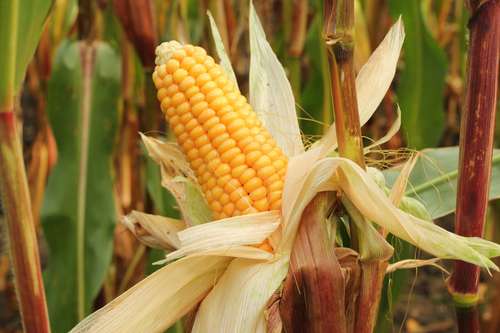The cornfields of the Midwest are buzzing with exciting changes. Farmers who once relied heavily on towering traditional corn plants are now turning a keen eye toward more compact varieties. This shift isn’t just a fleeting trend – it’s a full-blown agricultural revolution that’s redefining efficiency in corn farming. With a blend of modern science and time-tested farming intuition, the rise of short corn varieties is sparking interest far and wide.
Many of us have wondered how farming techniques evolve over time. It seems that innovation finds a way to marry convenience with productivity. The compact corn hybrids, sometimes lovingly dubbed as the 'short king corn,' give us a glimpse into the future of sustainable farming. They’re not only resilient, but they also allow for denser planting and ultimately, larger, high-yield corn harvests!
Whether you’re a seasoned farmer or a curious onlooker, the transformation in corn cultivation brings forward ideas of agricultural trends and crop innovation that at first glance might seem subtle. But beneath the surface, these shifts are paving the way for a revolution in corn production practices.
Embracing Compact Corn: A New Era in Crop Innovation
The adoption of compact corn varieties is a promising sign for modern agriculture. Farmers are increasingly drawn to these new hybrids due to their innate resilience and the ability to plant them closer together. In this section, we delve into the factors that have led to this widespread change as well as what it means for farming techniques today.
One major reason for their popularity is the reduction in wind damage risk. Shorter plants are less prone to being toppled by strong gusts, a concern that has long plagued corn production in the Midwest. By choosing compact corn, farmers are essentially buying insurance against unpredictable weather. Many have noted that this simple switch translates to improved farm efficiency and reduced crop losses.
The innovation behind these short corn varieties isn’t just about size. It’s a result of years of breeding techniques aimed at creating a crop that is both sturdy and productive. When you think about it, the way these plants are engineered mirrors some of the cutting-edge advancements in modern agriculture. The promise of sustainable farming paired with technological progress inspires confidence among those who trust in agricultural trends to secure the future of food.
Farmers are also excited about how compact corn allows for closer planting. With dense rows, every square inch of land works overtime. This means more corn production per acre, which is crucial in today’s competitive market. It’s a modern twist on old-school farming where maximizing every inch of farmland was key to survival.
Enhanced Efficiency and the Promise of Sustainable Farming
While advancements in corn farming have often centered around yield improvements, these short king corn varieties are leading the charge in sustainable farming. Here, we explore how these compact crops translate into enhanced farm efficiency and what that means for the environment in the long run.
Imagine managing a field where every plant is within arm’s reach. With these more compact varieties, a farmer’s workload can be significantly reduced. The closer spacing facilitates easier maintenance and quicker field checks. This is much like having your tools organized in a clean workshop – everything is efficiently at hand, reducing wasted time and energy.
In terms of resource usage, compact corn often requires less water per plant and tends to be more resistant to disease. All these factors underscore the sustainability aspect of these newer hybrids. Farmers have informed their peers, saying that by opting for efficient farming practices, they’re not only boosting production but also reducing the environmental footprint of their operations.
The move to compact crop varieties plays right into the narrative of modern agriculture. It is about using science and smart farming techniques to grow high-yield corn in an environmentally friendly way. This could very well be how the future of corn cultivation is shaped – combining productivity with a greener approach to farming.
When we look around, we see many farmers talking about these advancements in hushed tones of excitement at field days and agricultural fairs. One comment that keeps resurfacing is how these techniques honor tradition while embracing the new. It’s a balance of maintaining tried and true methods while also incorporating innovative practices that pave the way for the next generation.
Revolutionizing Corn Production Through Advanced Techniques
Exploring further, the advancements in corn production have a key focus on integrating cutting-edge farming techniques with age-old agricultural wisdom. In this section, we highlight how compact corn is revolutionizing the cultivation process, driving efficiency, and setting new standards in crop innovation.
The process behind developing shorter corn plants is an impressive demonstration of relentless research and practical experience. Breeders and scientists have worked tirelessly to engineer plants that are not only compact but also robust. This approach to corn farming marries technological progress with nature’s own rhythm. The result: a crop that is much more resilient in adverse weather conditions, which means that even when the wind picks up, farmers can remain calm, knowing that their fields of short king corn are built to last.
The advantages continue with the benefits of densely planted fields. When fields are tightly spaced, each plant competes less for sunlight and nutrients, which can lead to an overall increase in yield. It’s a win-win scenario that benefits corn production while mitigating risks. This efficiency is something every farmer dreams of. Every inch of arable land becomes optimized, and that’s a game changer in modern agriculture.
There’s also the angle of reduced maintenance challenges. The shorter stature of these varieties simplifies several aspects of field management. Imagine less time wrestling with tall, sprawling stalks and more time perfecting other farming elements such as soil health and pest management. It’s as if the field itself becomes an easier puzzle to solve, making everyday tasks smoother and more enjoyable.
Furthermore, these modern practices in corn cultivation contribute to the broader agenda of sustainable farming. As more farmers witness the benefits of high-yield corn production without excessive resource input, the movement toward a greener, more efficient agricultural system gains momentum. The interplay between innovative crop development and improved farming techniques is setting a precedent for what we should expect in the future of agriculture.
Looking Ahead: The Future of Corn Farming
The future of corn cultivation looks brighter than ever thanks to the rise of compact corn. This section spotlights what lies ahead for corn farming and how these trends may pave the path to greater efficiency and sustainability in agricultural production.
Farm efficiency is currently experiencing seismic shifts due to the emergence of short king corn. As more farmers adopt these compact hybrids, the way corn farming operates is evolving. It’s not just about lowering the risk of wind damage or streamlining maintenance; it’s about revitalizing the entire framework of corn production with modern, efficient practices.
One of the most exciting prospects is that these changes could extend beyond corn itself. The success of compact corn varieties might inspire similar crop innovations across different sectors of agriculture. When you see a trend that boosts both productivity and sustainability, it has a cascading effect that might touch countless other corners of farm life. The current strides in corn farming, therefore, set a precedent for agricultural evolution on a broader scale.
This journey reflects a blend of admiration for the land and a drive to improve it using science and innovation. While some may view these changes skeptically at first, the numbers speak for themselves: improved yields, less resource waste, and overall enhanced farm efficiency. Much like many important breakthroughs in history, the gradual acceptance of compact corn today is a glimpse into tomorrow’s standards of crop innovation.
So, if you ever find yourself driving through the heartland, take a moment to observe the fields. The shorter, sturdier corn plants are not just an oddity; they’re a promise of more efficient, resilient agricultural practices that blend the old with the new. With modern agriculture continually adapting to new challenges, embracing these innovative farming techniques might very well be the best way to ensure that future harvests are as bountiful as they are sustainable.
In conclusion, the rise of the short king corn is a fascinating development that champions both practicality and innovation. From reducing wind damage to enabling denser planting and ultimately larger harvests, these compact varieties offer numerous benefits that meet modern needs. As we look ahead, it’s clear that the evolution in corn farming is just getting started, and its impact on efficient farming and sustainable practices will be felt for generations to come.




